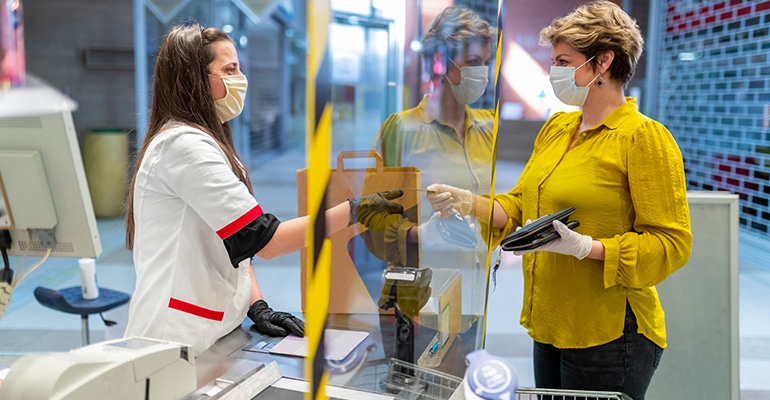Each day at 5 p.m. we collect the five top food and supplement headlines of the day, making it easy for you to catch up on today's most important natural products industry news.
May 21, 2020

Grocery employees say they work in fear, want hazard pay to continue
United Food and Commercial Workers represents 1.3 million workers in grocery, meat packing and processing and is currently pushing for big-box supermarket companies to continue hazard pay; some, including Kroger, recently ended "hero pay" raises for hourly workers. America's grocery workers are at a far higher risk of contracting COVID-19, and many are seeing shoppers become more relaxed in terms of wearing masks and social distancing. Read more at Detroit Free Press…
US relaxes rules for biotech crops
Certain instances of gene editing are now permissable without regulatory review from USDA. These include traits that could have been made via traditional breeding, which can take years of effort on the part of scientists. However, this lack of transparency is worrying to some groups because the general public will not be able to distinguish those products that are the result of gene editing from ones that aren't. Read more at Science…
Americans are cooking more seafood, but fishermen are struggling
Quarantined consumers are buying more fish and shellfish to prepare at home, but this rise in sales on the grocery end hasn't made a dent in the amount of revenue that fishermen lost from restaurants and food service. Two-thirds of seafood eaten in the U.S. is consumed outside the home, which isn't the case for chicken, beef and pork. Now, seafood companies are attempting to prevent the spread of COVID-19 among its workforce to avoid following in Big Meat's footsteps. Read more at The Wall Street Journal…
Trader Joe's launches Turkeyless Protein Patties
Trader Joe's is bringing a less-common variety of imitation meat to its shelves: turkey. The retailer's new Turkeyless Protein Patties contain 23 grams of protein and will be sold alongside its imitation beef burger which launched earlier in the year. Read more at AndNowUKnow…
Lab-grown fish just got real
BlueNalu, a foodtech startup in San Diego, recently grew fillets of yellowtail fish entirely cells. This product stands apart from other lab-grown meat because of its ability to withstand differend cooking methods; one other cell-cultured salmon recently tested was found to fall apart at high temperatures. Read more at The San Diego Union-Tribune…
You May Also Like


